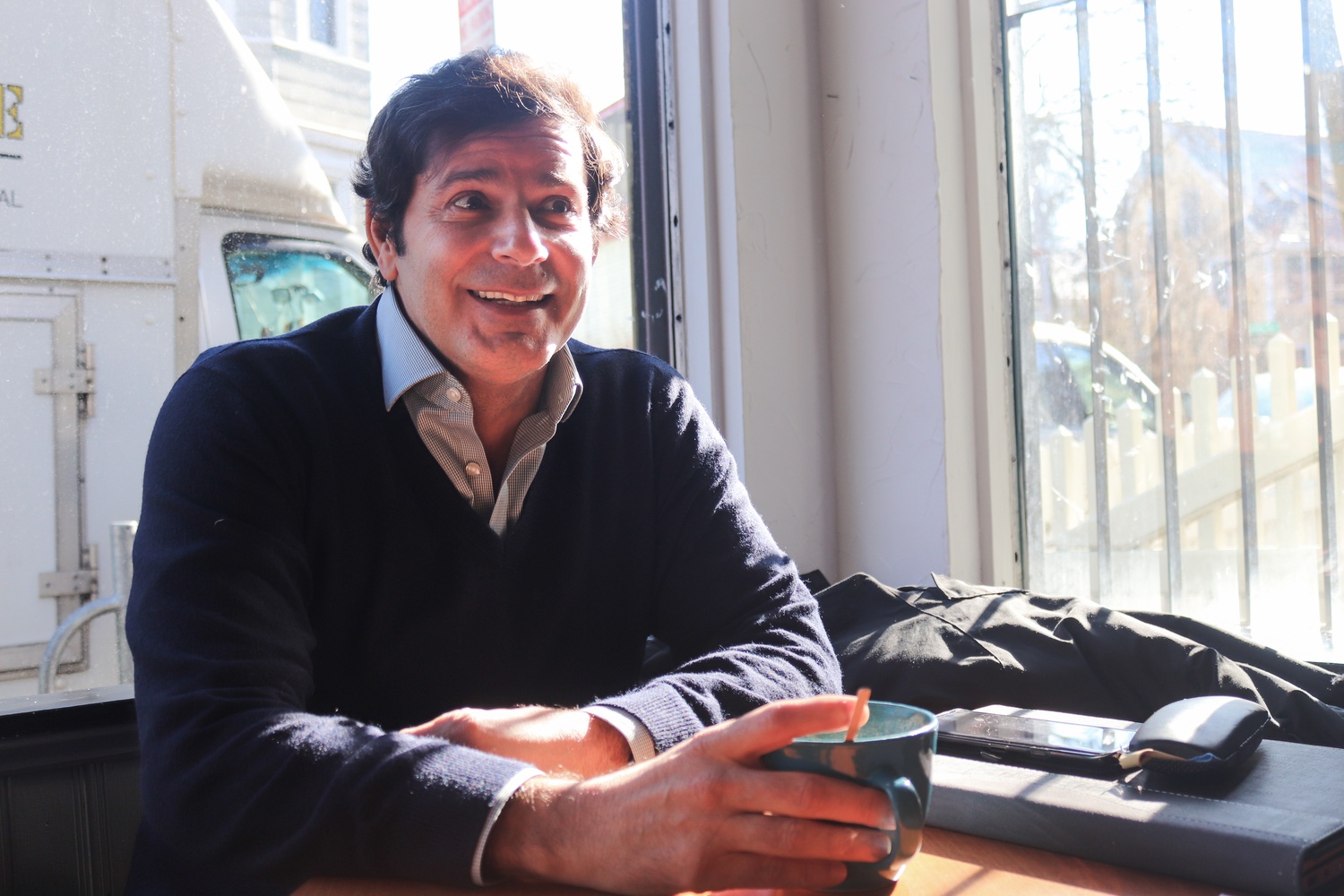
News
Summers Will Not Finish Semester of Teaching as Harvard Investigates Epstein Ties

News
Harvard College Students Report Favoring Divestment from Israel in HUA Survey

News
‘He Should Resign’: Harvard Undergrads Take Hard Line Against Summers Over Epstein Scandal

News
Harvard To Launch New Investigation Into Epstein’s Ties to Summers, Other University Affiliates

News
Harvard Students To Vote on Divestment From Israel in Inaugural HUA Election Survey
Venezuelans at the Harvard Kennedy School Speak Out Against Maduro

In the midst of political and economic turmoil in Venezuela resulting in international efforts to pressure President Nicolás Maduro to cede power, Venezuelans at the Harvard Kennedy School have spoken out with concerns about their country’s future.
Maduro was sworn into office for a second six-year term last month after a disputed election outcome. The opposition party accused the government of fraud and, later last month, the head of the opposition-controlled National Assembly, Juan Guaidó, declared himself interim president.
Isaías A. Medina III, a former United Nations diplomat from Venezuela who is now a Kennedy School student, said he considers Guaidó the nation’s rightful leader.
“The constituent assembly convened an election — a fake and sham election — that was held last year supposedly electing Maduro for a second term,” Medina said. “[Guaidó] is filling the void of the executive power legally, and that has translated into an unstoppable Venezuelan Spring.”
Maduro has repeatedly declared the election results in his favor legitimate.
Medina worked in the Maduro administration for two years before resigning in protest two years ago.
“I was never asked to do anything that would violate my principles or morals until 2017,” Medina said. “They started shooting protesters in the street, mostly students...I was shocked.”
Maduro has been accused of human-rights abuses throughout his presidency.
Kennedy School Venezuelan Caucus members Nizar El Fakih and Armando I. Flores grew up in Caracas, the country’s capital, and still have family in Venezuela. El Fakih said that when he wakes up and sees news about the situation, his family is the first thing on his mind.
“The first thing I think about is whether or not my family is finding the medicines that they need, if they are finding the food that they need,” he said. “It’s a preoccupation I always have.”
Many in Venezuela are facing significant food shortages, power outages, and lack of access to medical products and services.
El Fakih said it’s difficult to predict how political conflict between Maduro and Guaidó will unfold in the coming weeks.
“Based on my daily communication with the people that are leading this movement in Venezuela — the politicians that are in the Congress — they are not sure about what is going to happen because they cannot predict the behavior of the regime,” he said.
Flores said that although the future of the country is uncertain, new developments inside and outside of Venezuela give him cause for optimism.
President Donald Trump recognized Guaidó as interim president within minutes of the leader’s public announcement Jan. 23, along with a majority of Latin American countries and Canada that backed the opposition. As of Monday, nine European nations have also recognized Guaidó as interim president after Maduro refused an eight-day ultimatum to call new elections.
“When I see what’s happening now, I have hope. Things are changing in the political landscape. We don’t know how it’s going to end yet, but at least things are changing,” Flores said.
Medina said the international response was justified.
“It’s the responsibility of the international community to step in when governments act against their own population,” he said.
In response to Maduro’s continued insistence on his presidency, the United States has imposed sanctions on Venezuelan oil, a blow to one of its largest industry at a time when the country is already facing major economic challenges.
Rodrigo Diamanti, founder of the international non-governmental organization “Un Mundo Sin Mordaza,” Spanish for “a world without censorship,” was one of many activists arrested in 2014. He fled Venezuela in 2015 and is now a research fellow at the Kennedy School’s Ash Center for Democratic Governance and Innovation.
Diamanti said that rehabilitating Venezuela’s economy will be difficult since the nation has experienced levels of hyperinflation in recent months similar to those in post-World War I Germany.
“In order to recover from this level of collapse, we’ll need support from the whole continent,” Diamanti said.
“Malnutrition is affecting future generations, so it’s something that needs to be targeted very soon.”
Medina echoed the urgency in helping people suffering in Venezuela.
“This is a humanitarian problem,” he said. “It’s good against evil. It’s tyranny against democracy.”
— Staff writer Jania J. Tumey can be reached at jania.tumey@thecrimson.com.
Want to keep up with breaking news? Subscribe to our email newsletter.
